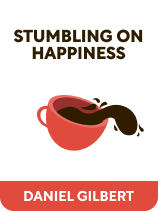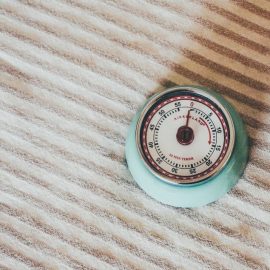

This article is an excerpt from the Shortform book guide to "Stumbling on Happiness" by Daniel Gilbert. Shortform has the world's best summaries and analyses of books you should be reading.
Like this article? Sign up for a free trial here .
Why do people tend to make such bad comparisons in life? How can those bad comparisons affect your future?
Humans don’t have a great track record for making good choices and comparisons. This is especially prevalent when we make comparisons to the past and present when making big decisions for the future.
Learn why your bad comparisons may be making you unhappy.
Making Future Choices
One poor choice about the future happens because when considering options for the future, you draw ineffective and bad comparisons to the present and the past, writes Gilbert.
(Shortform note: We make poor comparisons in all areas of our lives, not just in thinking about the future, as Gilbert describes. For example, Barry Schwartz writes in The Paradox of Choice that we make ourselves unhappy by comparing our choices not to the present or past but to the choices of others. Such comparisons can erode our happiness by making us feel inferior to others.)
Let’s look in detail at two types of ineffective comparison:
Bad Comparison #1: Comparing to the Present, Rather Than the Future
The first bad comparison you make is comparing a choice to other choices that are currently available—not to the other choices you’ll have in the future. Your circumstances may change in the future, and a choice that looks good now compared to your other present options may not look so good later.
Here’s an example: You’re at a small furniture store, considering which of two couches to buy. Couch 1 is both cheaper and more attractive than Couch 2, so you purchase it. However, later that afternoon, you drive by a larger furniture store and see five other couches in the window, all of which are cheaper and more attractive than your just-purchased Couch 1. You made a poor choice because you compared Couch 1 only to the choices currently available—Couch 2—rather than considering that if you visit another store in the future, you might find better couches.
Bad Comparison #2: Comparing to the Past, Rather Than the Future
The second bad comparison you make is comparing the future to the past, writes Gilbert. If a choice is more attractive now than it was, say, two months ago, you might opt for that choice, even if a better choice might arise in the future.
For instance, you might purchase an ottoman for $200 because its price has been marked down from two months ago, making it a better choice now than it was previously. However, later that day, you find another ottoman online priced only at $150. Because you compared the $200 ottoman solely to its past price point, you think you got a good deal. In reality, you could have saved more money by considering that you might come across even cheaper ottomans in the future.
| Using Delayed Gratification to Leave Room for Future Options One way to leave room for future options in your deliberations, rather than just making a choice based on present options or comparisons to the past, is to practice delaying gratification. It may be tempting or easy to make a choice now based on available information about present options or changes compared to the past. Furthermore, making a choice quickly based on this accessible information may feel satisfying. But if you can delay the gratification of making the choice, thus delaying the choice itself, you may find yourself able to take advantage of new options that come up in the future. You can practice delaying gratification by delaying it first by a tiny amount of time—for instance, waiting just an hour before making a choice to see if other options come up—and then slowly increasing the delay time to days or even weeks. |

———End of Preview———
Like what you just read? Read the rest of the world's best book summary and analysis of Daniel Gilbert's "Stumbling on Happiness" at Shortform .
Here's what you'll find in our full Stumbling on Happiness summary :
- A look at how your brain fabricates your reality leading you to make bad decisions
- The six specific types of bad choices people make
- How to improve your decision-making in the future






